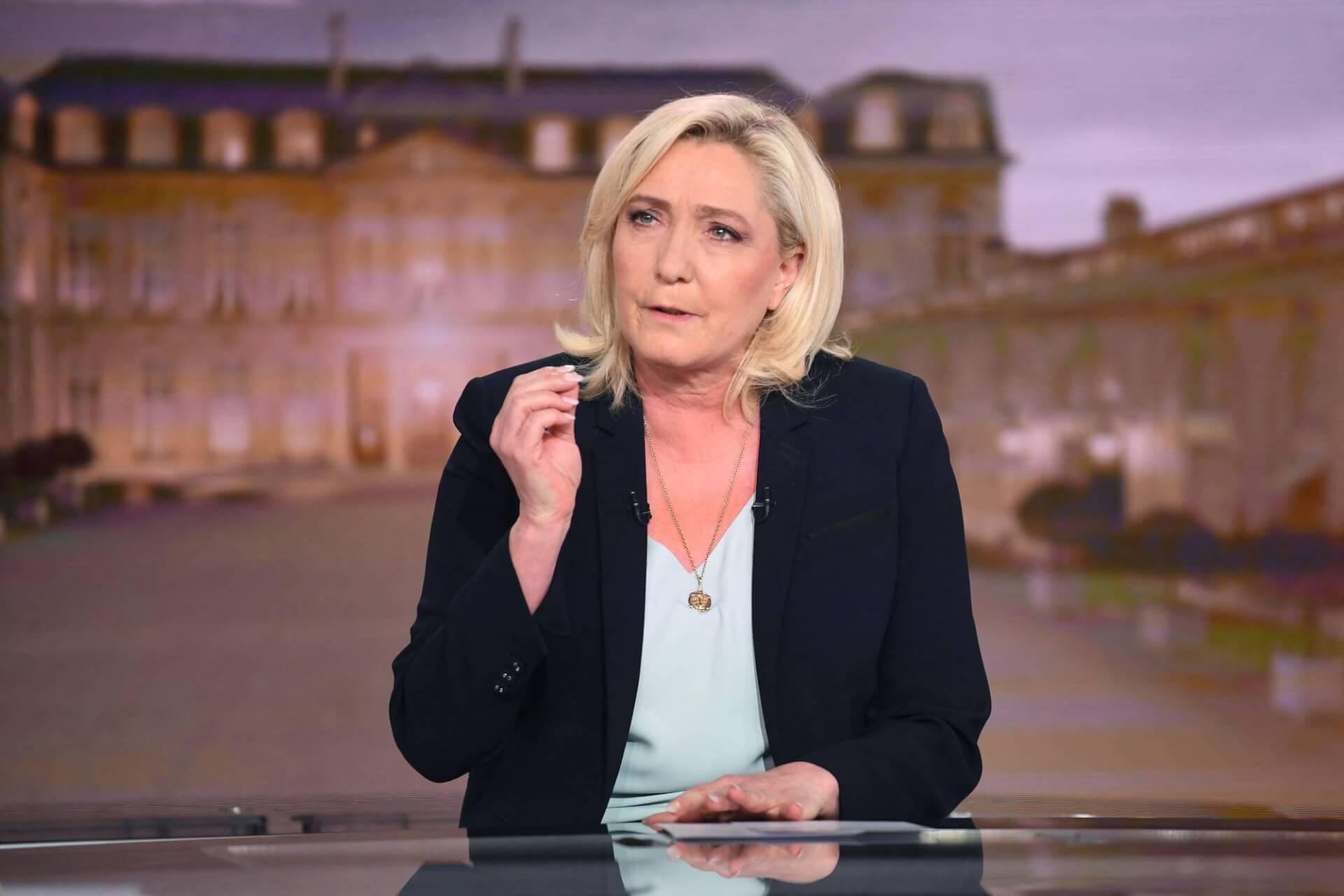In an interview with French public radio Ma France, presidential candidate Marine Le Pen declared that if elected, she would pursue closer ties with Russia after the Ukraine war to prevent Moscow from allying with Beijing.
“It will be necessary diplomatically, when the war [in Ukraine] is over, when a peace treaty has been signed, to try to avoid this tie-up which risks being the largest danger of the 21st century for us,” she remarked.
Justifying her stance to maintain ties with Moscow amid the changed geopolitical situation, Le Pen asserted, “Imagine… if we let the first producer of raw materials in the world — which is Russia — [create an alliance] with the first factory of the world — which is China — to let them perhaps constitute the first military power of the world. I believe that it’s potentially a great danger.”
Furthermore, she defended Russia’s invasion of Crimea in 2014, claiming, “Crimea was never invaded… there was a referendum in Crimea,” calling it “radically different” from today’s war, which began on February 24.
❗️ Marine Le Pen calls Russia 'Great Power'. Recognizes Crimea as integral part of Russia.
— BhikuMhatre (@MumbaichaDon) April 18, 2022
French Presidential candidate has called rapprochment with Moscow in Europe's security interests
🔸I like OUR Special Friend President Macron, but have started falling in love with Le Pen pic.twitter.com/BbHUixAmNu
Le Pen reportedly shares close ties with the Kremlin, admires Russian President Vladimir Putin, and wants France to pursue closer relations with Russia. In a 2011 interview with Russian newspaper Kommersant, she mentioned that both countries share “common civilisational and strategic interests” and expressed her desire to relieve France from North Atlantic Treaty Organization’s (NATO) command.
Moreover, Le Pen has refused to support sanctions targeting Russia’s energy sector, saying, “I stand against sanctions concerning energy because I do not want the French to bear the full brunt of the consequences of such a decision aimed at cutting gas or oil imports.” However, she claims to support sanctions on other sectors of the Russian economy and doesn’t support Russia’s invasion of Ukraine. On the contrary, Le Pen reaffirmed support for Ukraine, saying she’s a champion of “national sovereignty.”
Between 2014 and 2015, Le Pen’s National Rally party received $11.87 million in Russian financing. In fact, she is currently being probed by the European Union’s (EU) anti-fraud organisation, OLAF, for embezzlement. Le Pen and three former National Front members are being investigated for allegedly misusing the bloc’s public funds while serving the European Parliament.
Apart from embezzlement and fraud charges, OLAF has accused Le Pen and other members of “grave violations” and “inappropriate behaviour,” and is seeking reimbursement. Commenting on the investigations, she revealed, “I’m used to the EU’s dirty tricks.”
"I'm very used to the European Union's dirty tricks".
— euronews (@euronews) April 19, 2022
🇫🇷 French presidential candidate Marine Le Pen slams the EU over its allegations that she embezzled public European funds. pic.twitter.com/lEhCFqhS3f
The investigations come just days ahead of the second round of voting to be held on April 24. Le Pen is competing against incumbent President Emmanuel Macron for France’s top post. According to an Ipsos poll published on Monday, Macron leads the polls by 56%. In the first round of voting held two weeks ago, Macron secured 28% of the votes to Le Pen’s 23%.
In this respect, a coalition of candidates who failed to gather a sufficient share of votes in the first round—centre-right Valérie Pécresse (4.79%), Green contender Yannick Jadot (4.63%), socialist Anne Hidalgo (1.75%), and Communist Fabien Roussel (2.28%)—have urged their supporters to support Macron in the second round.
Similarly, the two other far-right candidates, Eric Zemmour (7.07%) and Nicolas Dupont-Aignan (2.06%), have called their supporters to vote for Le Pen.
French far-right politician Marine Le Pen said she will ban ritual slaughter of animals (used for kosher and halal meat) if she wins the election.
— AJ+ (@ajplus) April 18, 2022
France is home to Europe’s largest Jewish and Muslim communities. Critics call the move part of efforts to target those communities. pic.twitter.com/rT945oHMTC
To counter Macron’s stellar rise following the first round of voting and criticism of her National Rally party, Le Pen has toned down her campaign against hijab by saying that the ban would come “little by little” and be approved by lawmakers. Le Pen’s changed policy puts her in line with her opponent. Like her, Macron has also been pushing for cordial ties with Russia and has stayed in contact with Putin since the war began. Both Macron and Le Pen don’t want Russia and China to get closer, claiming that such an action would be catastrophic for Europe.

